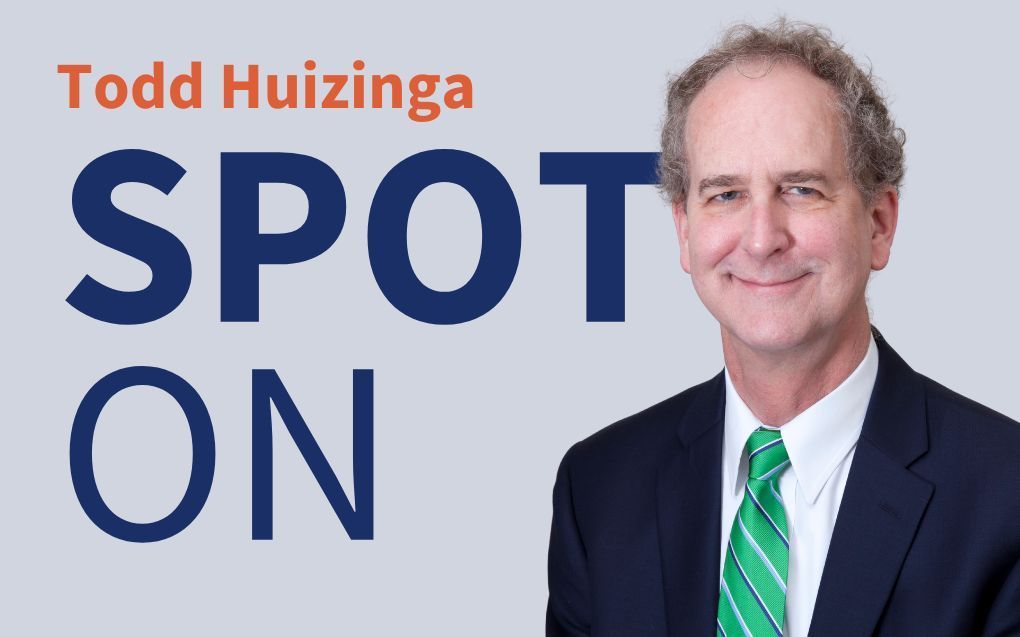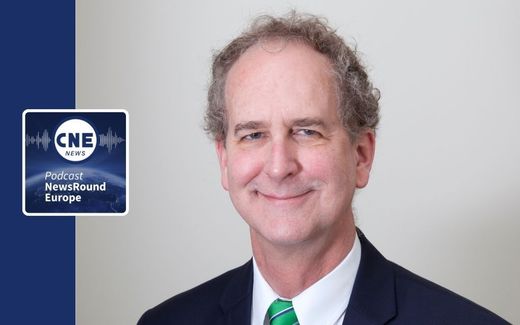May German Christians vote for the AfD?

Todd Huizinga. Photo CNE
Opinion
German Christians have difficulty voting for the populist AfD. Bishops from large churches have given a negative advice. But others think, the AfD is the only alternative. Todd Huizinga shares his ideas.
Stay up to date with Christian news in Europe? Sign up for CNE's newsletter.
Despite Germany’s determination to paint the Alternative for Germany (AfD) as an extremist, near-Nazi party, the AfD’s popularity has steadily grown. In February, the AfD ended as a strong second, doubling its vote share from the previous election and winning in every state in the former East. Since then, the AfD’s surge continues: polls show it tied for the lead with the Christian Democrats.
Along with the government, church leaders have jumped into the fray. In numerous declarations, officials of Germany’s two state-supported churches assert that a Christian cannot vote for the AfD. Why? The official view is, to quote a Lutheran bishops’ declaration, that the AfD “tramples the Christian view of the human person.” The argument goes as follows: the AfD violates human dignity in promoting anti-Semitism and “völkisch” racism reminiscent of the Nazi claim that the German Volk is the “master race.”
Are the bishops’ claims true?
If the allegations of racism and anti-Semitism are accurate, then church leaders would be correct: to vote AfD would defile the Christian faith.
However, the Catholic Bishops Conference is unable to prove that, even though they try to argue so in their declaration from 2024, “Völkisch Nationalism and Christianity are Irreconcilable”. Instead, it largely equates the AfD’s national-conservative patriotism, its desire to retain German cultural values, and its call for limitation and better control of immigration with völkisch racism. The document contains plenty of broad assertions of the AfD’s alleged völkisch racism, but lacks any actual examples.
So, what does the AfD actually say?
Here’s what the AfD’s 2025 party platform says about the human person:
“The AfD’s view of the human person is that every individual is essentially shaped by his personal freedom, by his right to comprehensive personal development and by his personal responsibility to his fellow human beings and society. This view is grounded in humanistic and Western values and norms, in whose centre lies equal opportunity.”
The same platform says about human dignity: “We want to safeguard the accomplishments of German and European culture and uphold, in Germany and beyond, the fundamental values of human dignity, freedom and self-determination.”
Conservatism
I don’t know about you, but this doesn’t sound extremist to me. Just like the policies the party actually advocates —as opposed to the policies it’s alleged to advocate— what the AfD actually says fits quite comfortably within legitimate conservatism.
However, to its own detriment, the AfD too often exhibits a clumsy use of controversial terminology in daily practice. Here’s an example: the response of “Christians in the AfD” (ChrAfD) to the Catholic Bishops refutes their allegations quite handily, arguing correctly that it is not völkisch to affirm that different peoples—such as the German people—exist.
But then it makes a huge mistake: in referring to the ethnic basis of most nation-states, ChrAfD uses the word Blutsgemeinschaft (community of blood). The bishops had claimed that the AfD’s use of that word proved the party was völkisch. And that is understandable, since the word played a significant role in the Nazi rhetoric. The use of the word by the ChrAfD in a response at least revealed an astounding lack of sensitivity to the explosive nature of such historically fraught words. Other AfD figures, above all the controversial AfD leader in Thuringia, Björn Höcke, have also done great damage with their sharp rhetoric.
Evangelical leaders
Bible-believing evangelicals make up a large portion of active Christians, but only two per cent of the German population. The evangelical leaders seem much more hesitant than officials from the state church to tell their fellow Christians how to vote.
One reason for this is that evangelicals —who emphasise personal conversion, evangelism, and the authority of Scripture— concentrate much more on faith than on politics. One evangelical leader wrote that he would never vote for AfD. But he added that other Christians, given the other parties’ post-Christian, secularist policies, might see good reason to do so.
Yet, opinions differ among evangelicals. Some well-known people, such as former newscaster Peter Hahne and Hartmut Steeb, ex-head of the German Evangelical Alliance, have either publicly supported the AfD or refused to take a position against it. On the other hand, former Evangelical Alliance official Uwe Heimkowski rejects the AfD as strongly as the Catholic bishops.
What’s coming?
Despite all the noise, the church leaders’ statements have had little effect. According to exit polls, Christians voted more or less the same as the rest, with the AfD approximately doubling its vote share among Christian voters.
Suppose national-conservative populism continues to rise in Europe. In that case, it seems likely that more and more practising Christians will support it. After all, most of the continent’s national conservative parties —the AfD, Orban’s Fidesz, Poland’s Law and Justice, Vox, Meloni’s Brothers of Italy, the Sweden Democrats and others— are much closer to practicing Christians than other established parties on key issues such as the right to life, support of traditional marriage and family, and opposition to gender ideology.
Most importantly, though, churches must guard themselves against political partisanship, which undermines Christian witness and ultimately the Christian faith itself. There are always exceptions, but Christians should generally refrain from telling other Christians how to vote.
Meanwhile, AfD opponents would do well to critique the AfD as it actually is: a populist party that (1) seeks to counter the establishment’s leftward trend; and (2) suffers, like every political party, from an inability to prevent problematic members from engaging in troubling rhetoric.
Related Articles









